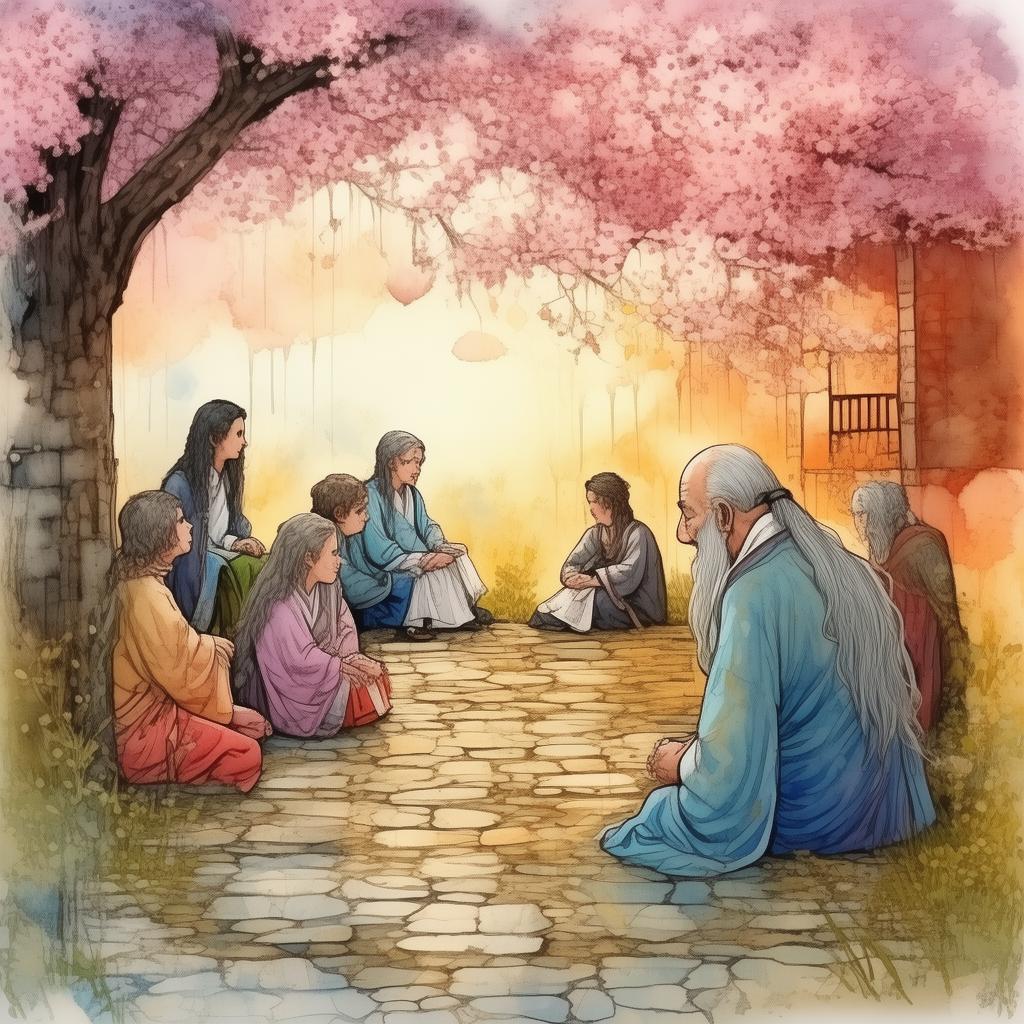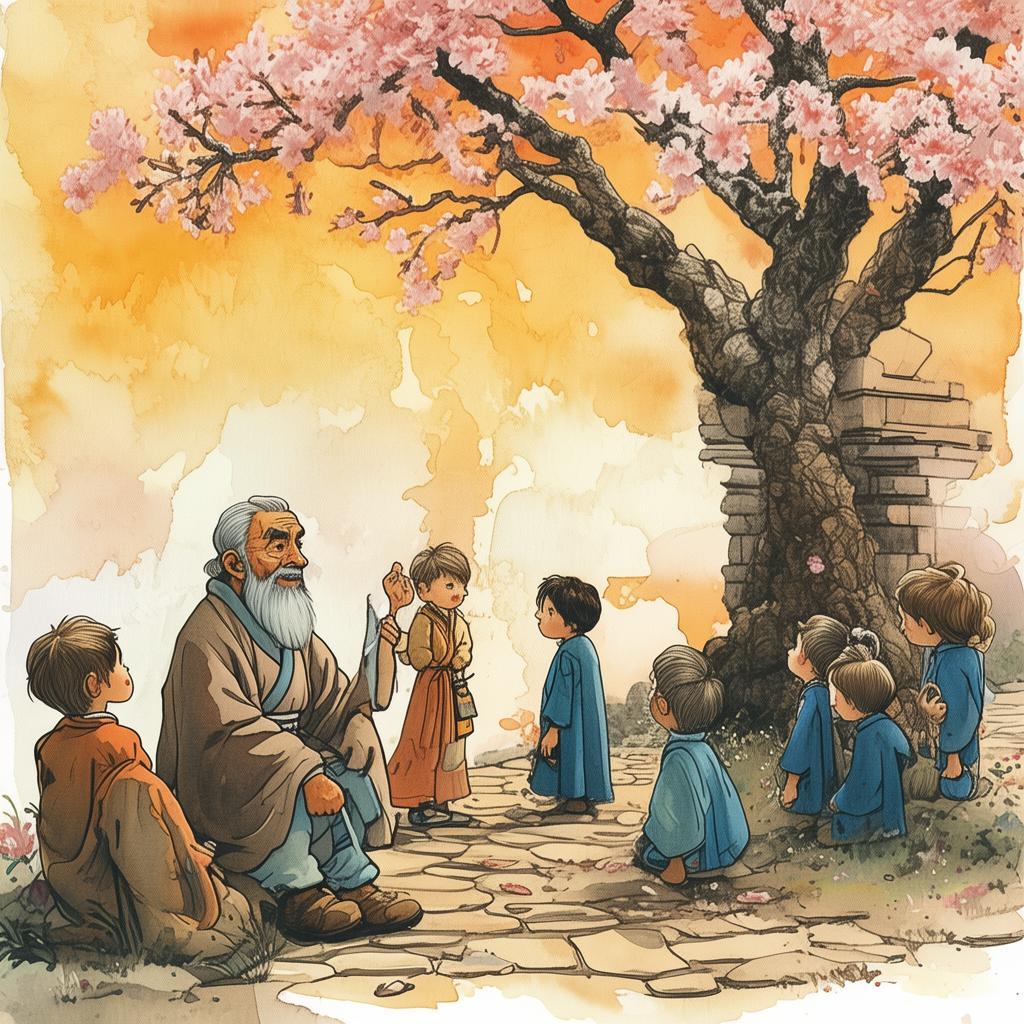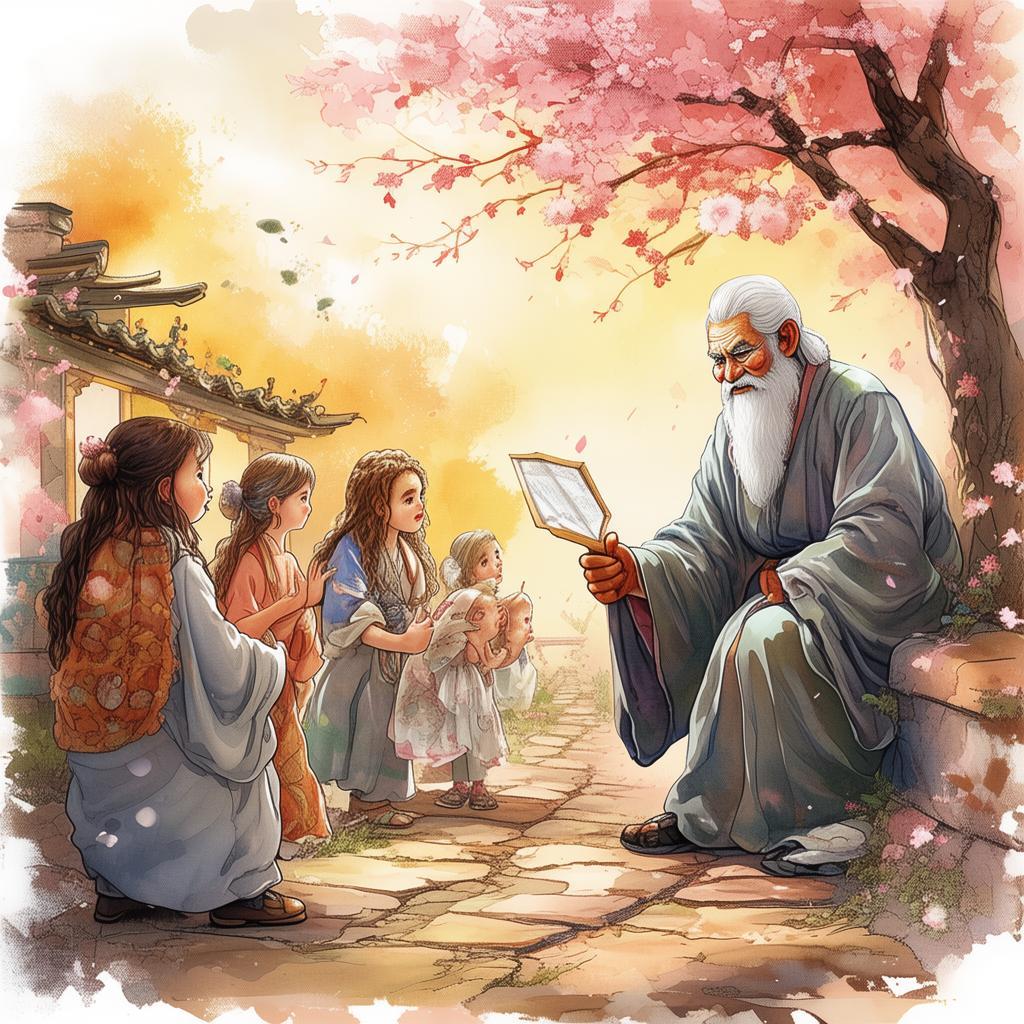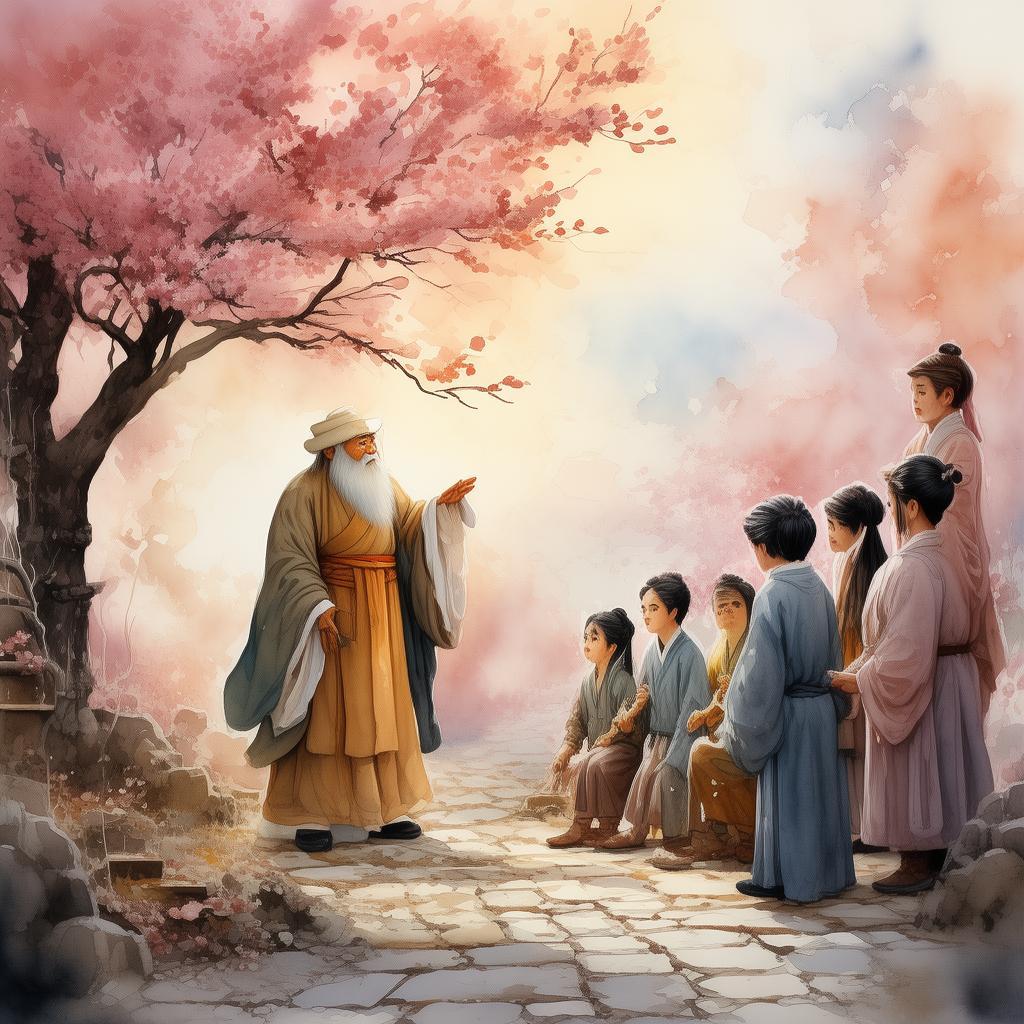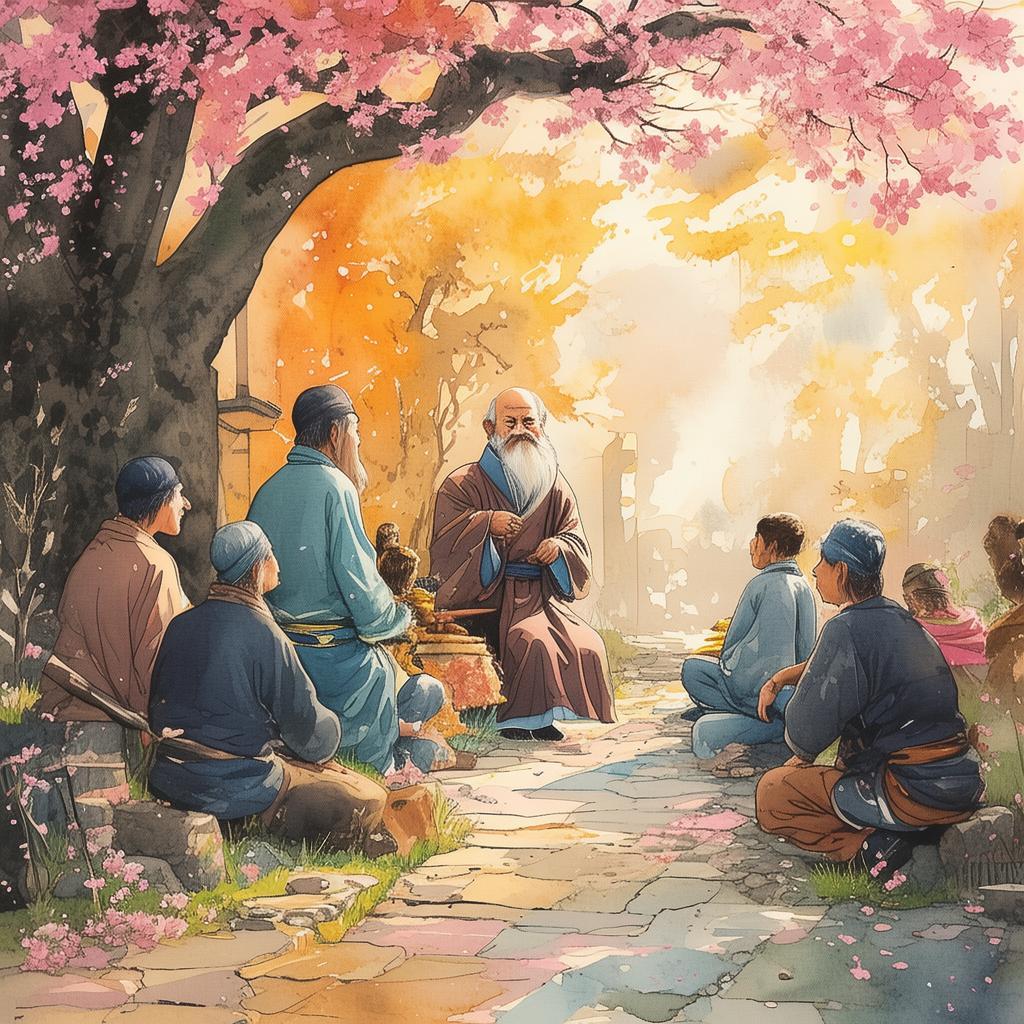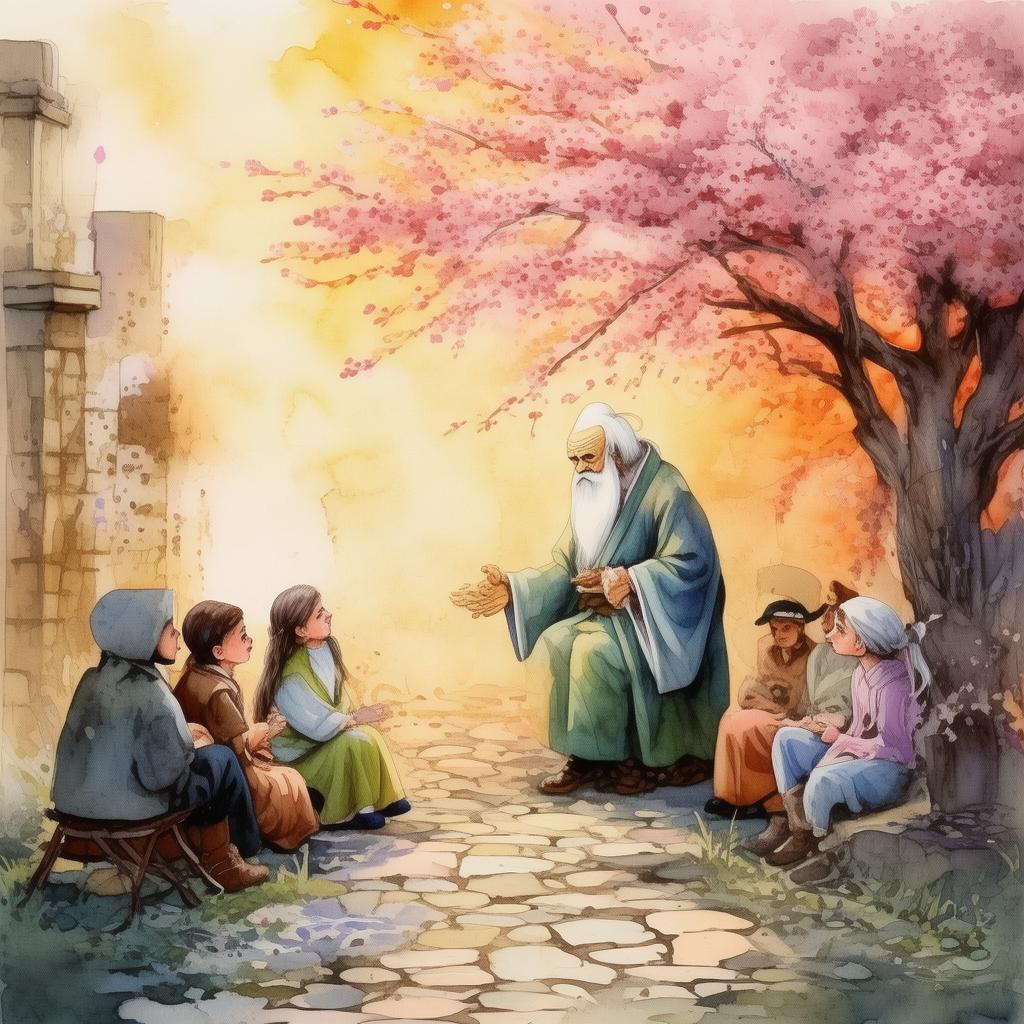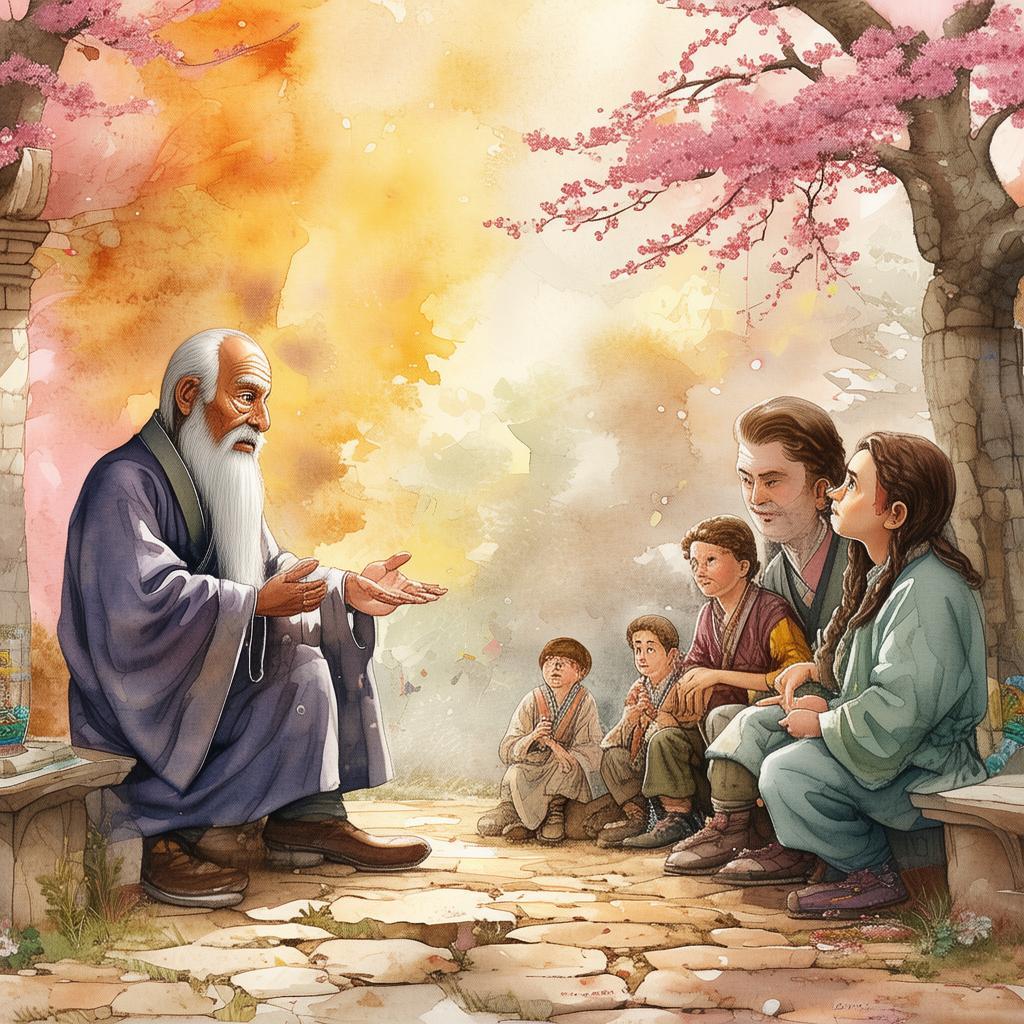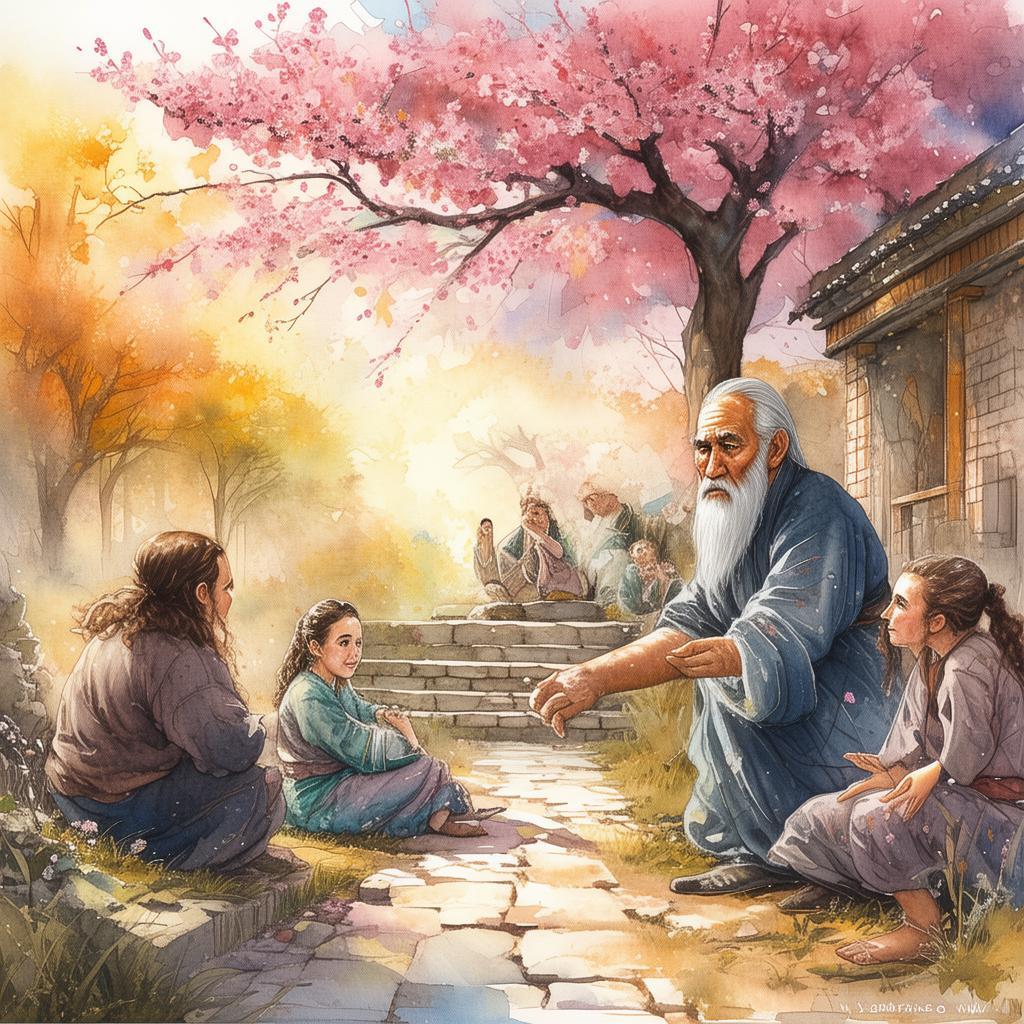The Enigma of the Golden Key
In the heart of the bustling city of Linghua, where the air was thick with the scent of incense and the hum of conversation, there lived a young scholar named Ming. Ming was not like other scholars; he was a seeker of idioms, those ancient sayings that held the power to reveal the mysteries of the future. It was said that in the depths of the ancient library, hidden away from the eyes of the world, lay the fabled Golden Key—a key that could unlock the wisdom of the ancients and reveal the idioms of the future.
Ming had spent years studying the idioms, their origins, and their meanings, but he knew that the true power of these sayings lay in their potential to shape the future. It was a quest that had consumed him since he was a child, and now, at the age of twenty-five, he felt the weight of destiny upon his shoulders.
One crisp autumn morning, as the sun rose over the city, Ming stood before the ancient library, its walls weathered and its gates heavy with time. The library was a place of whispers and secrets, where the air seemed to hum with the echoes of the past. Ming's heart raced as he pushed open the gates, his mind already racing with the possibilities that lay within.
Inside, the library was a labyrinth of shelves, each filled with scrolls and tomes that whispered of ancient wisdom. Ming navigated the narrow corridors, his eyes scanning the texts for any mention of the Golden Key. It was not long before he found what he was looking for—a single scroll, yellowed with age and bound with a string of silver wire.
The scroll was titled "The Enigma of the Golden Key," and it spoke of a quest that had been forgotten for centuries. According to the scroll, the Golden Key was hidden within a series of riddles and puzzles, each more difficult than the last. To find it, Ming would have to decipher the enigmas and overcome the challenges that lay before him.
The first riddle led him to the city's grandest temple, where he was met by an old monk who tested his knowledge of the idioms. Ming answered with ease, but the monk's eyes held a knowing glint as he revealed the next riddle—a riddle that required Ming to venture into the forbidden forest.
The forest was a place of shadows and danger, where the trees whispered secrets and the wind carried the sounds of the unknown. Ming braved the forest, his mind filled with the idioms he had learned. It was there, in the heart of the forest, that he found the second riddle—a riddle that required him to solve a puzzle involving the stars.
Ming spent days under the night sky, studying the patterns of the stars, until he finally deciphered the riddle. It led him to a hidden cave, where he found the third riddle—a riddle that required him to face his deepest fears.
Inside the cave, Ming was met by a figure who represented his own fears and doubts. The figure spoke to him of the dangers of seeking knowledge, and Ming was forced to confront the shadows within himself. With the help of the idioms he had learned, Ming overcame his fears and solved the riddle.
The final riddle led him to the edge of a cliff, where he was met by a storm. Ming knew that the Golden Key was hidden in the storm, but he also knew that the storm was a test of his resolve. With a deep breath, Ming stepped into the storm, his heart pounding with fear and determination.
In the heart of the storm, Ming found a chest, bound with a golden chain. He opened the chest to reveal the Golden Key, its surface glowing with an otherworldly light. The key was the key to the idioms of the future, and with it, Ming knew that he could shape the world as he saw fit.
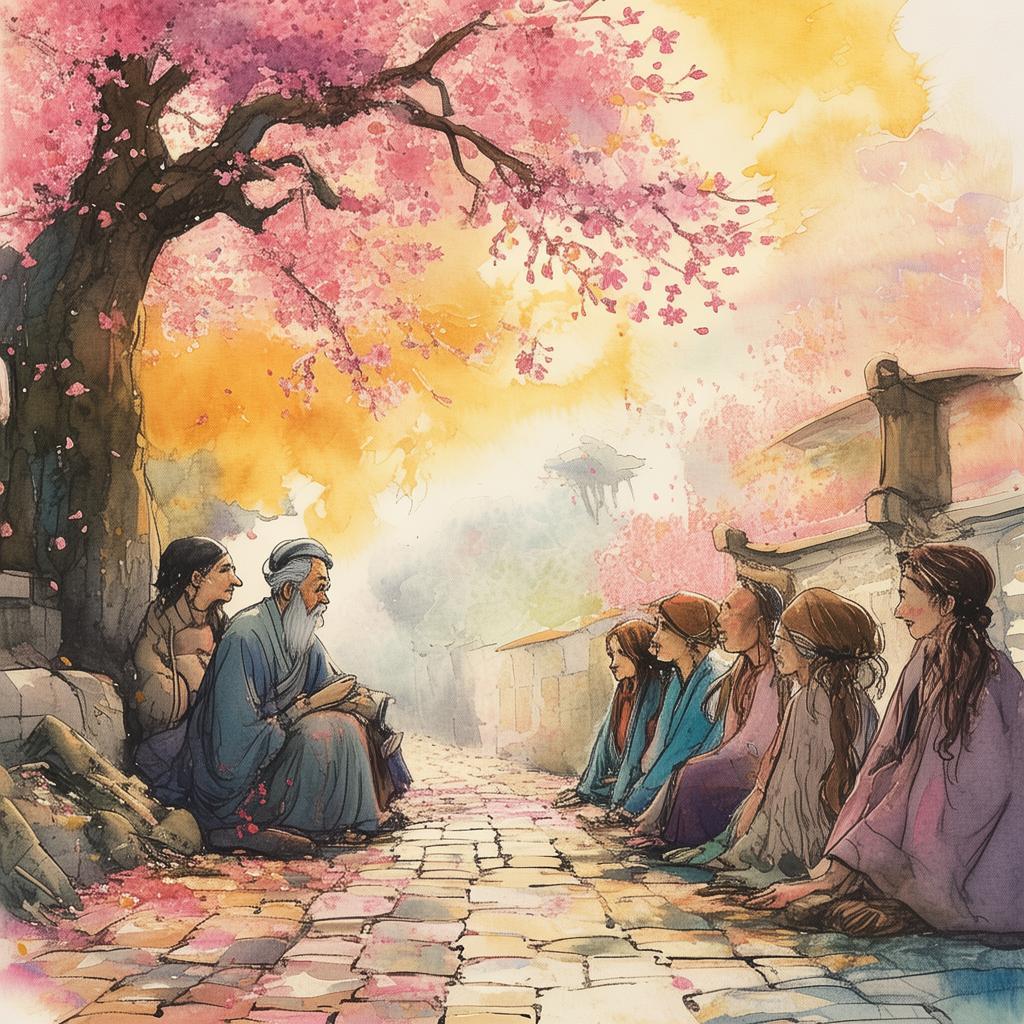
As he held the Golden Key, Ming felt a sense of peace and purpose. He had completed his quest, and with the wisdom of the ancients at his disposal, he was ready to face the future. Ming knew that the idioms of the future were not just words, but tools that could be used to build a better world.
With the Golden Key in hand, Ming returned to the city, his heart filled with hope and determination. He knew that the journey was far from over, but he was ready to face whatever challenges lay ahead. The idioms of the future were his, and he was ready to unlock their secrets and shape the world as he saw fit.
And so, the young scholar Ming became a legend, a seeker of idioms who had uncovered the fabled Golden Key and revealed the idioms of the future. His story was told for generations, a tale of courage, determination, and the power of ancient wisdom.
✨ Original Statement ✨
All articles published on this website (including but not limited to text, images, videos, and other content) are original or authorized for reposting and are protected by relevant laws. Without the explicit written permission of this website, no individual or organization may copy, modify, repost, or use the content for commercial purposes.
If you need to quote or cooperate, please contact this site for authorization. We reserve the right to pursue legal responsibility for any unauthorized use.
Hereby declared.
